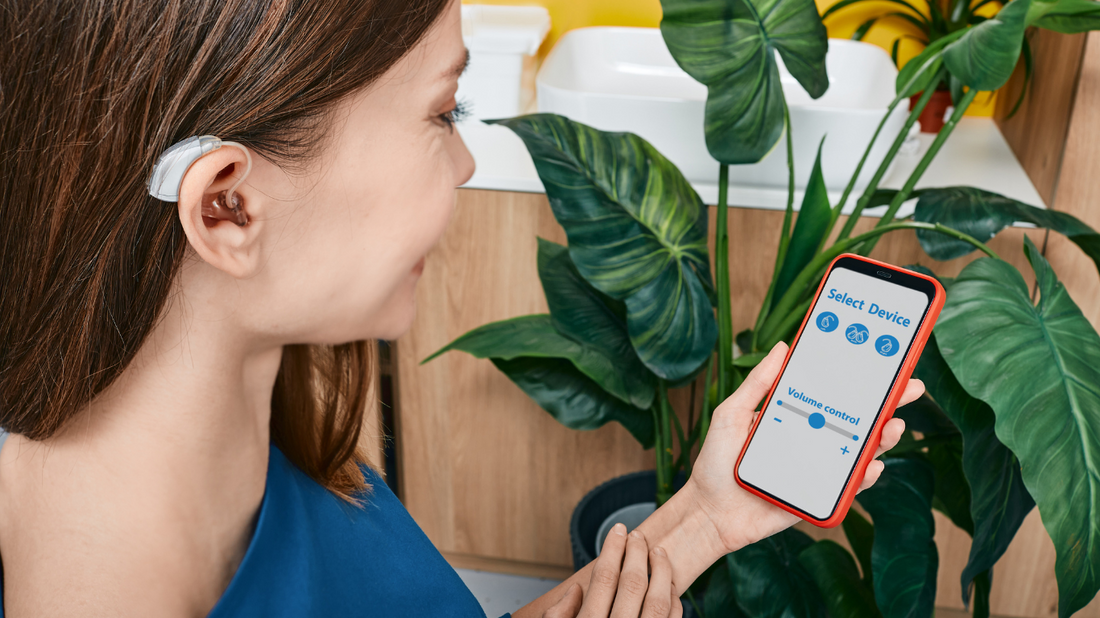Ever notice the soft hum in the backdrop of a quiet living room? The steady tick of the clock, a faint broadcast from the neighbor's TV, or a dog's bark from a few blocks over? Imagine those sounds coming in clearer than before. That's what’s on the table with hearing aids. Yet, it's not a quick fix—it's a gradual process to reacquaint oneself with.
Think about the scenario where you put on glasses and the blurry world sharpens instantly. It isn’t quite the same with hearing aids. They need time to sync up with your ears and brain, tuning back into the symphony of daily life. So, do hearing aids help folks catch those subtle noises again, like leaves rustling or distant laughter? We're here to unwrap the process of welcoming these devices into your life and reconnecting with the auditory nuances that enrich our days.
Adjusting to Your New Hearing Aids
When you first get your hearing aids, simple noises like the hum of your refrigerator or the conversations from the TV might catch you off guard. These sounds are just your everyday background noise stepping into the spotlight. To get used to this enhanced world of sound, start with short periods of wearing your hearing aids. Maybe listen to a familiar song for a while, and let your ears pick up nuances you haven't heard in years. Gradually, you can wear them longer, letting your brain relearn which sounds to focus on.
Week 1 with your devices
By day four, you might notice the strain of deciphering all those new sounds you're encountering. But hang in there; as your week progresses, clarity improves. You might even catch yourself telling folks to lower their voice because you can actually hear them well now. Working with your hearing aids can be a bit like training for a marathon—steady and gradual. Practice tuning in by listening to familiar tunes or watching a quiz show and answering before the contestants do. Remember, this isn't a sprint; you're retraining your ears to keep pace with the world again.
Week 2 and 3
Heading into the second and third week with your hearing aids, you'll likely notice things are getting smoother. Conversations flow better; there's less guesswork and fewer misunderstandings. By the third week, voices come through clearer, almost effortlessly. Your brain's getting sharper at sifting out the noise. Less straining to listen means more energy for you to enjoy the back-and-forth banter with friends and family.
The “Aha!” Moment
Wearing your hearing aids consistently for about three weeks, you're going to experience a moment of clarity, like a lightbulb switching on. You'll realize you can pick out the soft chirping of birds, the rustle of the wind through the leaves, or distinguish conversations in a lively room. That moment when the world's soundscape shifts back into focus, and you're reintroduced to the nuances of daily life – this is what makes the process worth it. It's when you start to reclaim activities you might have set aside, like sitting outside enjoying nature or comfortably chatting with friends in a bustling environment.
Embrace the Symphony of Sounds

You remember what it's like when you first turned on a new appliance at home? It was likely a little strange at first, but before long, it became part of your everyday life. Well, getting used to hearing aids follows the same idea. Soon enough, you'll find yourself tuning into your grandson's stories and not missing the punchlines of jokes. And on those days when you wonder if those hearing aids are pulling their weight, trust that they are. It won't be long until you’re surrounded by every beautiful note of your favorite songs and the soft 'goodnights' from your partner. Curious about the HearWell Group's hearing aids? They’re worth a shot. You might discover a new appreciation for every sound you’ve been missing.
Sources & References
- Jastreboff, P. J., & Jastreboff, M. M. (2015). Decreased sound tolerance: hyperacusis, misophonia, diplacousis, and polyacousis. Handbook of Clinical Neurology, 129, 375-387. https://www.sciencedirect.com/science/article/abs/pii/B9780444626301000214
- Mahmoudi, E., Basu, T., Langa, K., McKee, M. M., Zazove, P., Alexander, N., & Kamdar, N. (2019). Can hearing aids delay time to diagnosis of dementia, depression, or falls in older adults? Journal of the American Geriatrics Society, 67(11), 2362-2369. https://agsjournals.onlinelibrary.wiley.com/doi/10.1111/jgs.16109
- Nordvik, Ø., Laugen Heggdal, P. O., Brännström, J., Vassbotn, F., Aarstad, A. K., & Aarstad, H. J. (2018). Generic quality of life in persons with hearing loss: a systematic literature review. BMC Ear, Nose and Throat Disorders, 18, 1. https://bmcearnosethroatdisord.biomedcentral.com/articles/10.1186/s12901-018-0051-6
- Sarant, J., Harris, D., Busby, P., Maruff, P., Schembri, A., Lemke, U., & Launer, S. (2020). The effect of hearing aid use on cognition in older adults: Can we delay decline or even improve cognitive function? Journal of Clinical Medicine, 9(1), 254. https://www.mdpi.com/2077-0383/9/1/254
- Weinstein, B. E. (2015). Hearing loss and healthy aging. The Hearing Journal, 68(7), 22-24. https://journals.lww.com/thehearingjournal/Fulltext/2015/07000/Hearing_Loss_and_Healthy_Aging.5.aspx

The Hear Well Group Research Team: Trusted Hearing Health Insights
Our experienced research team compiles hearing health data from credible, peer-reviewed sources and presents it in easy-to-understand terminology. We ensure accuracy and trustworthiness, providing up-to-date, evidence-based recommendations to enhance hearing care practices and inform our readers' hearing well-being decisions.
